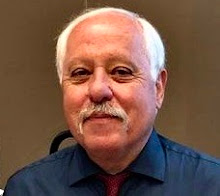Mildenhall (above) noted that to have credibility with target audiences, strength of character is important. He credited his mother with instilling a sense of strong character and responsible performance. You must have a clear sense of purpose, he said. “Purpose drives performance; purpose is personal.”
Reich emphasized that “the reason I am excited to speak here today is because public relations professionals can help lead the way in creating meaningful dialogue. You have influence over the tone of the debate and civility is essential. You know how to listen and show respect for others. You can help overcome sources of distrust.”
A former Secretary of Labor in the Obama administration, Reich noted the climate of contentiousness across the country is the direct result of political discourse that has grown too vitriolic, and incivility is the rule of the day.
As a result, “we are not communicating,” he says flatly. Reich highlighted three reasons for our current dilemma.
First, “tribal geography.” With more choice of where to live than ever before, he noted, we tend to live where people agree with us. “We need to break out of that constraint and embrace civil discussion. This country’s founders knew that democracy would only work if we reach out and engage with people who have a different point of view."
Next, “stagnant wages.” Reich noted that “the median wage has not changed in 40 years” when you consider the effect of inflation over the same time period. “Only 50 percent of millennials are doing better than their parents,” he said. For many, “the system is not working. It seems the game is rigged.”
Finally, "the media.” Reich, a prolific author (“once you put my books down, you can’t pick them back up,” he joked), pointed to a “diminishment of attention spans” and noted that “social media is easily manipulated. It’s easy to just tell partial facts or fudge the facts to distort the truth. It’s dangerous to democracy.”
Despite the seemingly untenable environment as we approach election day, Reich closed on an upbeat note to the approximately 2,500 public relations practitioners in attendance: “Trust is our most precious commodity, and people want a more civil discussion. Truth and civility should be the hallmarks of our society.”
















